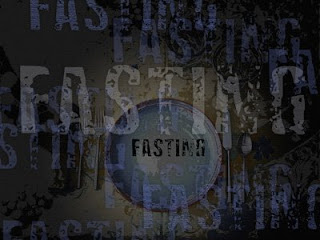Fasting for Lent
Like last year, I am encouraging our congregation to fast during Lent which begins on Ash Wednesday, March 9. This is certainly not an expectation but rather an invitation. Fasting is a spiritual discipline; it means abstaining from food for spiritual purposes. Fasting and prayer go together. Therefore we devote the time normally used for eating to reading scripture and prayer. Furthermore, the feeling of hunger is a reminder to draw near to God. Doing so often leads to greater intimacy with the Lord and to hearing more clearly what the Lord is saying to us. While there are interesting physical things that happen when we fast, far beyond anything physical is the spiritual. This is a discipline that helps us hear from the Lord and be in the Lord’s presence.
Jesus teaches us in the Sermon on the Mount (Matthew 6) about giving, praying, and fasting as virtues of the kingdom people. Jesus does not say, “If you fast.” Rather he gives directions for “When you fast.” Jesus also teaches that we should refrain from calling attention to what we are doing. We do not act miserable because, in fact, we are not miserable. We are feeding on God!
Please remember that some people are not able to fast, such as those who are diabetic, pregnant, or heart patients. Please do not abstain from food if it is unhealthy for you. There are other ways to fast. For instance, we can abstain from the internet, chocolate, television, or something else. It has to be something important to you daily, though. This is the practice of “giving up” something for Lent and would be given up the entire season of Lent, from March 9 until Easter Day, April 24. Again, the major work of fasting is in the realm of the spirit. Keep prayer and fasting together.
If you are fasting by abstaining from food there are several options:
- Twenty-four hour partial fast. You can drink fresh fruit juice during the fast. If you fast from lunch to lunch you would not eat two meals (supper and breakfast). This could be done once a week. Richard Foster says in his book Celebration of Discipline, “Outwardly you will be performing the regular duties of your day, but inwardly you will be in prayer and adoration, song, and worship. In a new way, cause every task of the day to be a sacred ministry to the Lord.” It is important to pay attention to the inner attitude of your heart. Breaking the fast should be done with a light meal of fruits and vegetables and rejoicing.
- Another partial fast – the Daniel fast. This involves giving up particular foods and drink for an extended period of time. Following Daniel’s example in scripture, this usually means giving up rich food, meat, and wine. Daniel asked to only eat vegetables and drink water. This could be done for three days, seven days, or even twenty-one days.
- Twenty-four hour normal fast. Again do not eat two meals but only drink water (and healthy amounts of it). This could be done once a week. You will feel hunger pains, however, it is not real hunger. While the human body can only survive a short time without water, we can live for many days without food. Foster says the stomach is like a spoiled child and a spoiled child does not need indulgence but discipline.
- Thirty-six hour fast. Do not eat three meals and drink only water. For instance, to fast on Wednesday, eat supper on Tuesday evening, then eat nothing more until breakfast on Thursday morning. This could be done once or twice a week. The ancient church manual, the Didache, prescribed two fast days a week – Wednesday and Friday. John Wesley revived this teaching from the Didache and urged early Methodists to fast on these two days. Later in Wesley’s life he fasted every Friday.
- Three to seven day fast or longer. Foster says a fast for that time period would probably have a “substantial impact on the course of your life.” The first three or four days are usually the most difficult, physically. The sixth or seventh day you begin to feel stronger and more alert. By the ninth or tenth day the body will have eliminated most toxins, hunger pains will be minimal, and you will feel good. Physically, this is the most enjoyable part of the fast. Anywhere between twenty-one and forty days, hunger pains will return. This finally is the first stage of starvation. The body has used up its reserves. The fast should be broken with small amounts of fruit or vegetable juice. The stomach has shrunk and the digestive system has gone into a kind of hibernation. You must be very careful as you begin eating again!
Please consider fasting during Lent. Again, this is an invitation, an encouragement and not an expectation. If you choose to join me in this spiritual discipline, let us begin preparing now for a season of fasting and prayer.
After Ash Wednesday, we will have a prayer gathering each Wednesday at 8:15 pm at one of the Westside 6 congregations (Asbury, St. James, St. Mark's, Salem, Sharon, Trinity). I would love to hear if you are fasting and if you have any questions.




Comments
Post a Comment